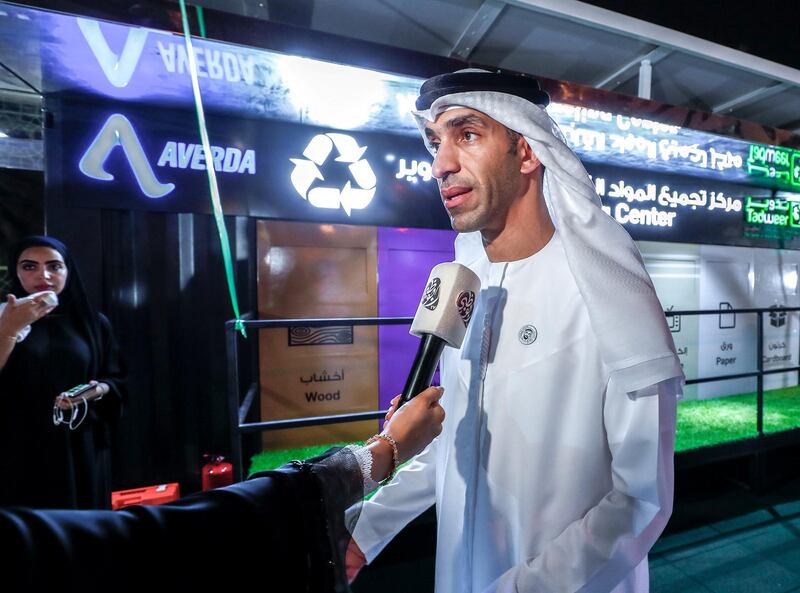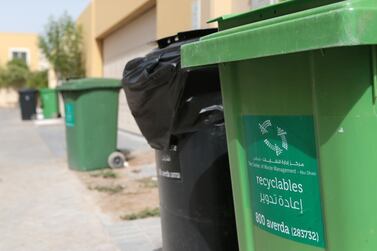Sustainability gurus, recycling experts and environment chiefs are heading to Abu Dhabi in a few weeks for a high-level summit aimed at transforming attitudes around waste management.
Cutting-edge technologies in recycling, ending the use of landfill and ramping up efforts to change people’s entrenched behaviour towards disposable items are all topics under the microscope at the Ecowaste Summit.
The four-day event runs from January 13 to 16 will feature a host of speakers from about 60 countries.
Hosted by Tadweer, Abu Dhabi's Centre for Waste Management, it also will seek to examine the growth of the circular economy in the region. Pioneered by countries such as Finland, the circular economy is a new way of thinking that promotes reuse, repair and recycling.
“The exhibition will provide an ideal platform to exchange ideas and discuss new ways of waste management, recycling and safe disposal,” said Salem Al Kaabi, director general of Tadweer, on Tuesday.
“And to make them less expensive on state... budgets.”
The summit comes at a crucial moment as people's attitudes across the globe harden against a culture of disposability and try to embrace a more sustainable way of living. Dubai airports said that it would phase out single use plastics by next year.
Abu Dhabi, meanwhile, has set ambitious targets to have only send 15 per cent of waste to landfill by 2030.
At present, about 80 per cent goes to landfill, official figures show, and this turnaround will be achieved by recycling, reuse, awareness campaigns and potentially through the establishment of waste-to-energy power plants.
Some of the most visible signs of this strategy are the more than 15 recycling stations that have popped up across the emirate in the past year.
“Tadweer is at the forefront of the sustainable waste management conversation in the UAE,” said Mr Al Kaabi. “We stand fully committed to … unlock the circular economy and achieve zero waste.”
Countries such as China and Japan are participating in the summit for the first time where they will showcase the latest technologies in waste collection, sorting and recycling.
China, for example, has begun to use artificial intelligence and robots to sort rubbish much more efficiently than humans. Residents can also use smartphone apps to help them distinguish which recyclable category their waste belongs too.
“We [are] committed to bringing global innovations to the local and regional market,” said Mr Al Kaabi.
This movement towards zero waste must be seen against the backdrop of increasing concern over climate change with pollution and extreme weather events becoming more common. The most recent high-level talks on the issue ended Spain a few days ago.
The UN’s Cop25 gathering agreed all countries must put new climate pledges to reduce emissions on the table by the time of the next major conference in the UK next year. The talks are aimed at implementing the Paris deal.
Agreed in 2015 and now signed by 195 countries including the UAE, the objective of the agreement is to limit global average temperature increase to 1.5°C above pre-industrial levels. But experts warn that within a decade the world faces increases of more than 1.5°C if countries fail to act.
For more information on the summit visit www.ecowaste.ae







